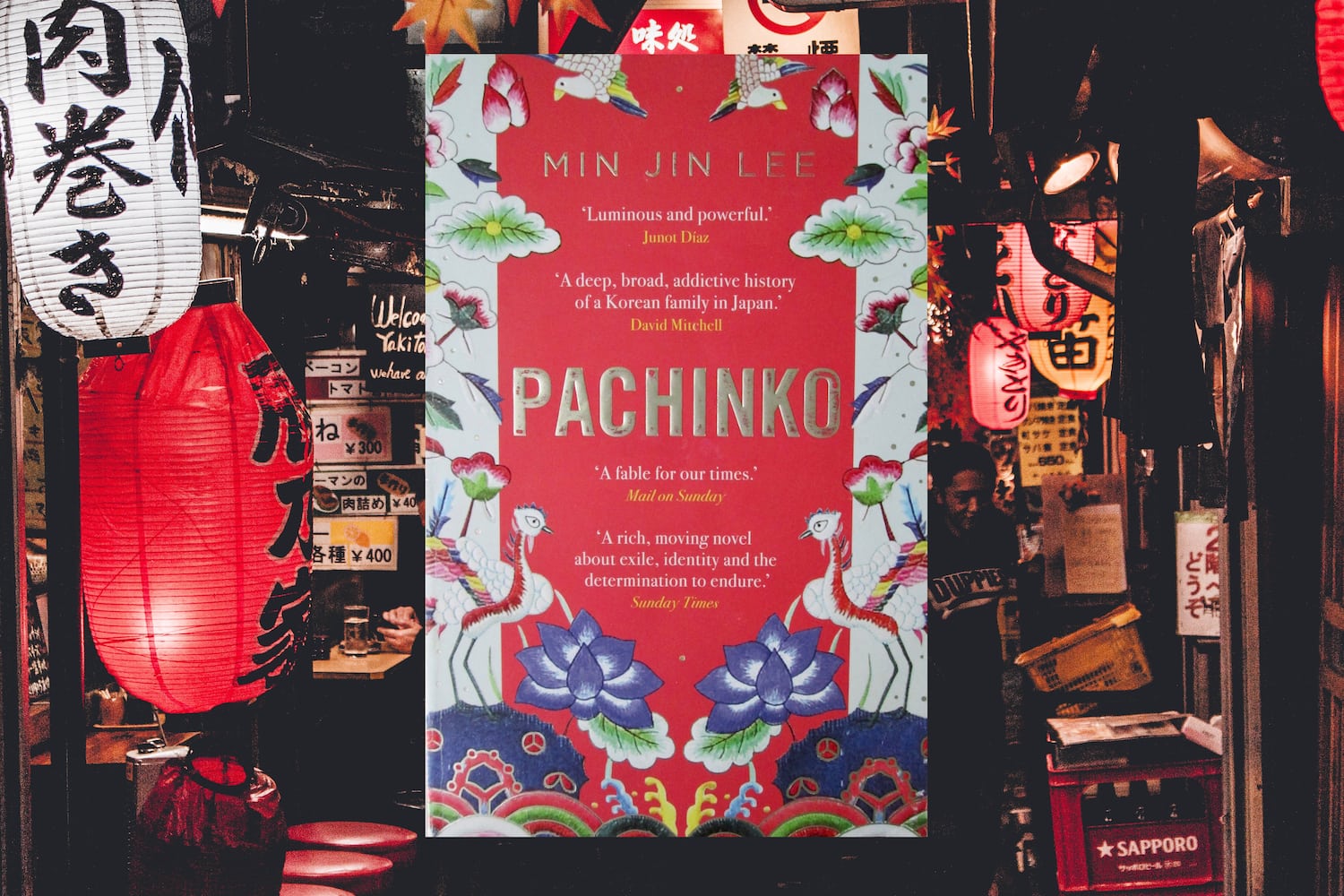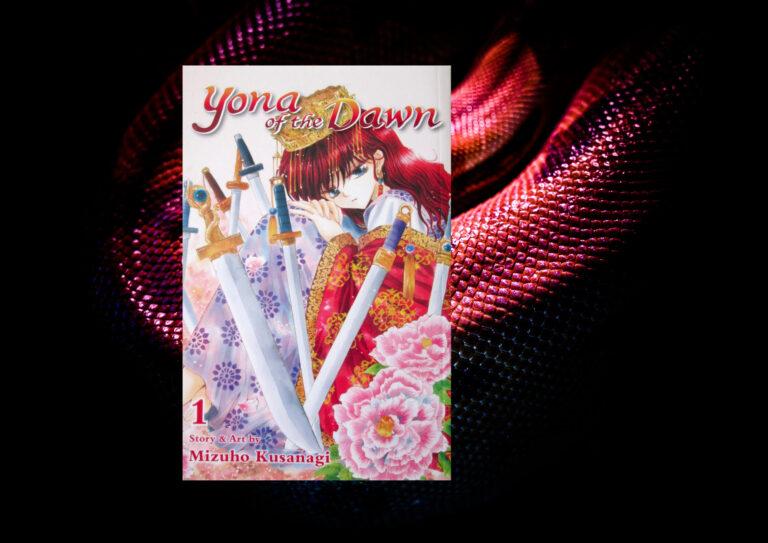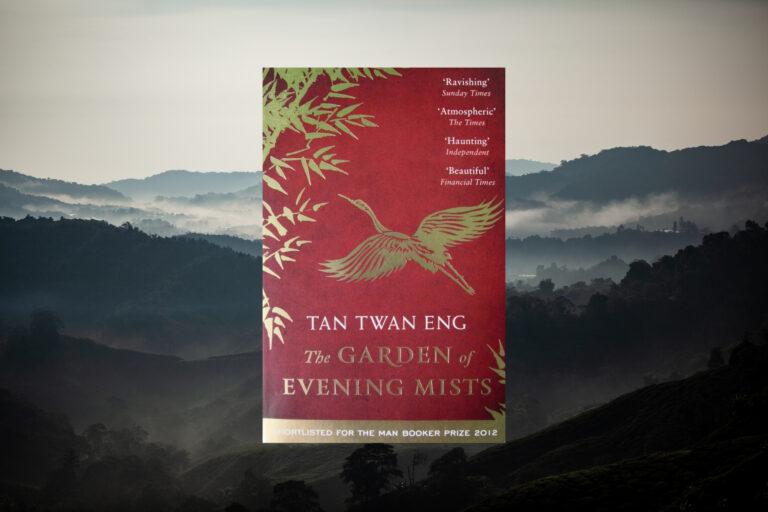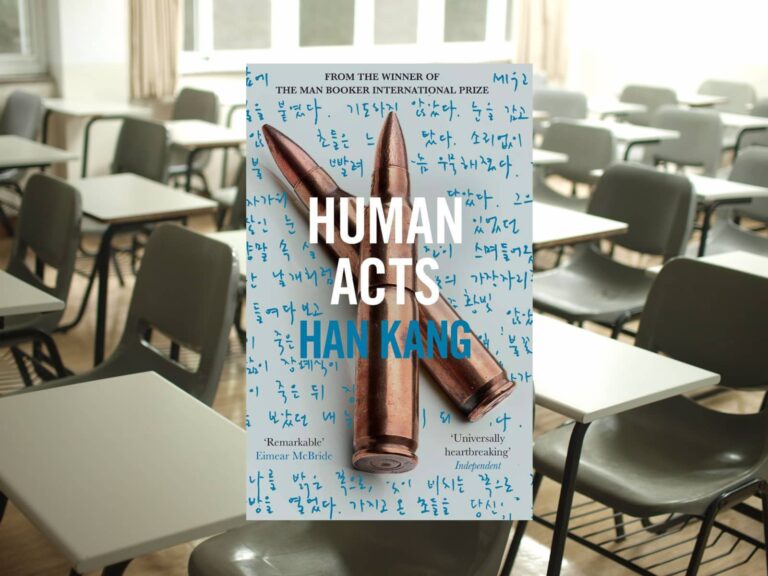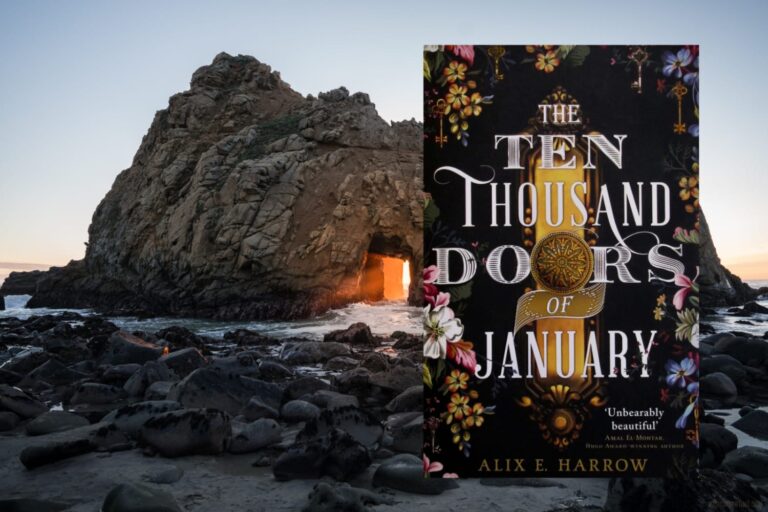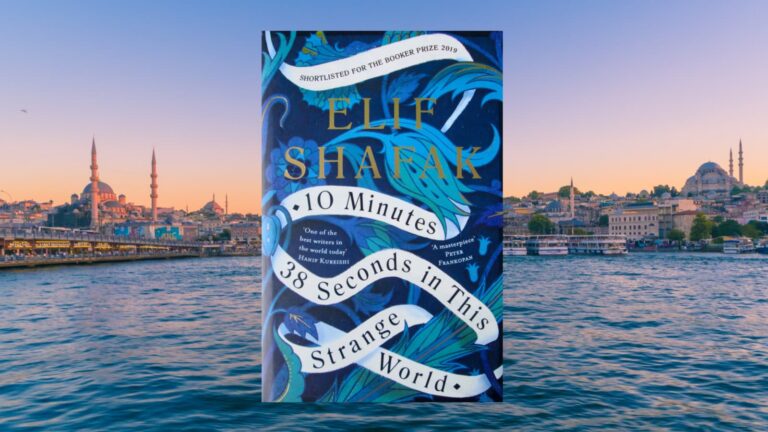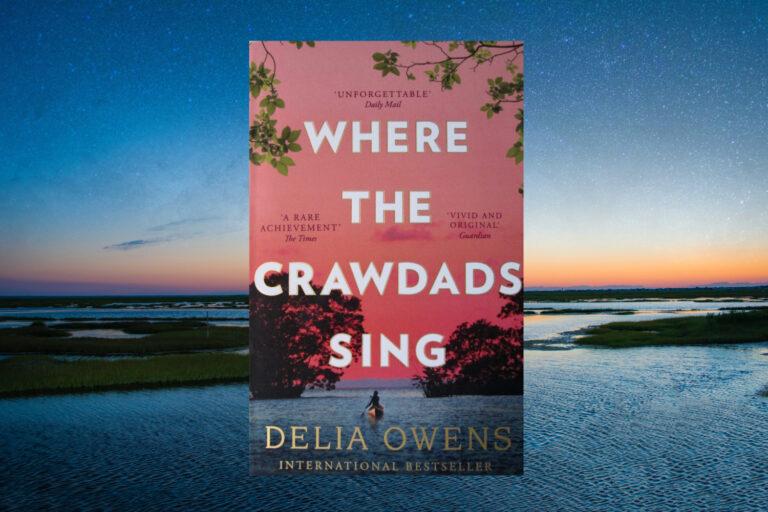An enticing read, highly addictive, and just as colourful as the game it’s named after – Pachinko is a must-read for anyone who loves a multigenerational saga, whilst also revealing a part of history not widely known. Moving, heart-wrenching, and hopeful, Min Jee Lee weaves a narrative around one girl and her family as they enter a changing and unwelcoming world, while telling a larger, mostly unknown story of Japan’s treatment and discrimination of Korean families who emigrated there in the 20th Century.
Covering four generations of a family, the book begins and largely follows Sunja – an only child who’s much loved (due in part to the parents’ hardships), and who helps out with their humble ‘boarding house.’ Sunja however has been keeping a secret from her family; enticed by a much older man she has begun an affair, her mind running on daydreams of how their future will be. That is till she finds out that he’s not quite what she imagined, for one thing he’s married, for another he’s a yakuza (criminal gang member).
Living in a small town in Korea and with the country occupied by Japan, times are hard and her options limited, for Sunja’s affair has resulted in a pregnancy. To avoid the shame of being an unwed mother, Sunja marries a visitor to the boarding house – the young, kind, but sickly Christian minister who will raise Sunja’s unborn child as their own and in their new home of Japan. This is where most of the novel then takes place, examining what it takes to make a new home in a country that’s unknown to you and doesn’t want you – with Japan treating Koreans as less than second-class citizens.
On top of this Sunja is trying to get used to motherhood – when she’s only just left her own childhood behind – whilst being a supportive wife to a man she barely knows, but feels indebted to, and all the while keeping the identity of her son’s biological father a secret, most of all from him.
The strife and difficulties of Sunja’s life are enhanced by the author’s dramatically opposing landscapes, and in this the reader is thrown along with Sunja from her childhood home, and its raw beauty of a wild coastal town, to that of being a young adult in the hustling, smog, and grime of Japan’s squalors. Secrets implode, bombs fall from the coming of a Second World War, and narratives look set to repeat.
At first the story of Pachinko mainly follows Sunja in her resettling; framing her life as an immigrant in unfriendly country, and away from all that she’s known. But through her struggles and perseverance comes the next generation; her two sons Noa and Mozasu, and later on her grandson Soloman, with the presence of her character continuing throughout.
The unfolding history of Noa and Mozasu enrich the ambience of Sunja’s tales by providing fresh points of view as children who were born and raised in a country different from their parents, and yet are still unrecognised as equal civilians compared to those with Japanese blood. Their identities as such left in limbo; either to be formed by themselves, or to be formed by society unless they hide their heritage. For should it be found out that their children of immigrants – they face losing their status, friends, loved ones, home and job. What’s also interesting is the Min Jee Lee’s decision to have the children grow up with different personalities to that of their biological father, and instead to have a similarity to those they admire as role models. For Noa (the son of a yakuza) he rejects anything that’s not of a morally high standard as he attempts to emulate the characteristics of the Christian father that raised him, rather than his biological one. Meanwhile Mozasu doesn’t emulate his father (the minister) but a yakuza instead. Therefore, the two brothers differing personalities challenge generalised assumptions, and reflect instead the individual decisions they make, while their contrasting personalities also question the choices, judgements and greys of life.
The author Min Jin Lee, also looks at the sufferings of identity crisis, the cruelty of discrimination and prejudice as the story increasingly becomes that of a tragedy for one, while for the other there’s growing optimism, strength, and determination – for although they have difficult times, they face them head-on and fists up.
Pachinko is a fictional account of a family’s tale of immigration – of always being treated as a stranger in a place you call home – of forming new starts while letting go of the past. To cultural differences, and Japan’s not so spoken history of prejudice, one that in part still continues today.
Book Edition Information:
Publisher: Apollo (imprint of Head of Zeus)
ISBN: 9781786691347
Cover Design: Stephane Roussel/Alamy Stock Photo
Presented Edition: 2017 Paperback
Background image courtesy of Alexandre Chambon on Unsplash

